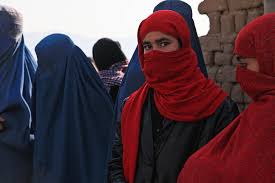As a result of the Taliban’s policy of preventing Afghan Girls from obtaining the education of any kind, there has been an increase in the number of students being married off to support their families financially. The young Afghan girls now face a very different kind of life ahead of them, one that will be filled with the tedium of domestic labor, boredom, and isolation, none of which they will be able to change. The lives of Afghan teenage girls have been dominated by conflict and violence their entire lives. Since the education ban was implemented, there has been a rise in the number of reports of schoolgirls and university students across the country being coerced into marriage.
In December 2021, the supreme leader of the Taliban, Mullah Haibatullah Akhundzada, issued a decree that made it illegal to marry someone against their will and mandated that women give their consent before getting married.
However, according to a prosecutor who worked for the former Afghan government and who requested anonymity for reasons of safety, this law is not being enforced, and the number of women who have been married against their will has significantly increased ever since the Taliban attacked girls’ rights to receive an education.
Death in Slow Motion: Women and Girls Under Taliban Rule, which was published by Amnesty International the year before, found that rates of child, early, and forced marriage in Afghanistan appear to have increased under Taliban rule as the militant group methodically dismantled the rights and economic autonomy of women across the country.
The Tragic Reality for Afghan Girls Denied Education is a heart-wrenching reality that has been prevalent in Afghanistan for decades. The article sheds light on the tragic consequences of denying Afghan Girls access to education and forcing them into early marriages. The issue has garnered widespread attention in recent years, with many organizations working towards the betterment of women’s rights in Afghanistan.
Early marriage and lack of education are deeply intertwined issues that have a severe impact on women’s lives in Afghanistan. According to a report, 33% of Afghan girls are married before the age of 18, and 60% are married before they turn 19. This is often the result of poverty, insecurity, and traditional patriarchal values that view women as property. Early marriage forces girls to leave school and take on the role of a wife, leading to a life of dependency, domestic servitude, and often, physical and emotional abuse.
Education plays a vital role in breaking the cycle of poverty and gender inequality. However, access to education for girls in Afghanistan is limited due to various reasons. The Taliban rule, which banned girls from attending school, is one of the significant reasons. Girls’ access to education remains limited due to poverty, cultural attitudes, and the lack of female teachers. Only 30% of Afghan girls attend primary school, and this percentage drops significantly as girls progress through higher education levels.
Despite these challenges, many organizations are working towards improving the situation for women in Afghanistan. The Afghan Women’s Network, Women for Afghan Women, and the Afghan Women’s Education Center are just a few of the many organizations providing support, education, and training to women and girls in Afghanistan. These organizations aim to empower women to take control of their lives and break free from the cycle of poverty and gender inequality.
As the world moves forward, there is a pressing need to ensure that women in Afghanistan receive the education and opportunities they deserve. The education and empowerment of women will contribute to the overall development and prosperity of the country. The international community must continue to provide support and resources to ensure that women’s rights are protected and promoted in Afghanistan.
In conclusion, the issue of early marriage and lack of education for Afghan girls is a complex problem that requires a multi-faceted approach. Through education and empowerment, women can break free from the cycle of poverty and gender inequality. Organizations working towards the betterment of women’s rights in Afghanistan must continue to receive support from the international community. It is only through joint efforts that we can ensure a better future for the women of Afghanistan.


